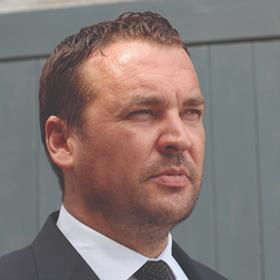At the beginning of a new year and decade, property’s leading lights reveal their hopes, expectations and resolutions for 2020 in the first of a two-part special running over the next two weeks.

Mervyn Howard
Executive chairman, Apache Capital Partners
Housing remains a major issue and the Conservatives need to look beyond first-time buyers and embrace a range of tenures, including BTR and senior living, if they are to meet their housebuilding targets.
For BTR, this means better educating local authorities about the benefits and nuances of the sector. Too many still see renting as a tenure of the last resort rather than a potential lifestyle choice. Looking at senior living, where we’ve partnered with Audley to deliver one of central London’s first retirement communities, we need a broader range of product.
With the threat of rent controls subsiding and ongoing challenges in retail and offices, I expect investors to continue to increase their allocations to UK residential, especially sectors like BTR, co-living and senior living.
As more schemes become operational, there will be a greater wealth of data to draw from, allowing for more effective benchmarking too.
Across real estate, the push towards sustainability will continue, along with a heavier emphasis on health and wellbeing – something we’ve helped pioneer in the residential space with our joint venture partners Moda Living. Globally, we will see structurally and demographically supported asset classes that provide long-term income streams with defensive qualities attract more money and attention from institutional investors.
Resolutions: Having opened Angel Gardens, our first scheme with Moda, and now being on site with three other schemes, we look forward to progressing our pipeline, starting construction on more developments and acquiring new sites.
For Apache Capital specifically, I want to continue to grow our team while maintaining the tight-knit culture we have. The business has come a long way since I’ve joined, becoming a fully integrated investor, developer and operator and I want to carry on that journey by broadening our presence into other living real estate sectors while continuing to work with top-tier partners.

Mark Quinn
Chairman and chief executive, Quinn Estates
I would like to see the government pursue a soft Brexit. There’s also early evidence that the government intends to invest heavily in infrastructure, especially in the north, and that’s something that we strongly support as a major developer.
This will also be a year in which we drive forward our journey into housebuilding with the setting up of Quinn Homes, and as a company we are confident that this will be a successful area of our business.
I expect a surge in investment and infrastructure investment by the government. I also think that there will be a substantial amount of inward investment from other countries flowing into Britain, especially into the regions of the north.
Resolutions: To drive the business on and continue to find great people to work with to help me to deliver the houses, workplaces and community facilities that this country needs – all while being a good father, a good husband and managing not to have a heart attack!

Mark Collins
Chairman of residential, CBRE UK
We enter 2020 cheered by speculation about an upturn for London’s housing market.
Our concern is around how to deliver more new housing. We still need to address the problems with the planning system. The speed decisions are made and implemented is crucial to increasing construction starts.
The picture can be maddeningly inconsistent for developers; some London boroughs suffer from delays, but elsewhere local authorities are delivering high-quality decisions. Southwark Council’s resolution to grant planning permission for British Land’s Canada Water masterplan is a signal that exemplar regeneration schemes can be put in motion in less-than-ideal market conditions.
I expect more people will recognise that residential has become an established asset class and that the sector spans the whole living cycle including student, multifamily, affordable and retirement housing. CBRE has forecast that investment into multifamily this year will significantly exceed 2019, as investors seek to diversify into other sectors and new markets.
I also expect there to be more mixed-tenure housing schemes, with housebuilders and registered providers working with investors to fund development.
Resolutions: To keep opening doors for people considering working in property. It is critical that the industry listens to the next generation about how they see the future, and the types of work we do. While the surveyor path into property and construction is still well respected, there is increasing interest in careers in tech and innovation, analytics and finance. We need to make sure we create those opportunities, or we could lose out on bright and entrepreneurial new talent.

Dave Sheridan
Executive chairman, ilke Homes
My hope is that Boris Johnson’s government repays the trust of voters in the north of England by continuing its commitment to creating a ‘Construction corridor’ in the north. Modern methods of construction have the potential to provide up to 80,000 jobs in the north while also significantly speeding up the delivery of housing across the country.
The government has pledged to deliver one million homes over the next five years. If it wants to get anywhere near that number, modern methods must play a central role.
By manufacturing off site, we’re not only able to deliver high-quality, sustainable homes at pace, but also roll out programmes aimed at teaching the next generation of housebuilders vital skills in digital design, manufacturing and engineering. This is going to become increasingly important following our departure from the EU once the UK’s access to the bloc’s talent pool is restricted.
I expect the housebuilding industry will continue to become increasingly interested in measures to protect the environment, and rightly so.
As the industry embarks on its journey to deliver energy-efficient homes, offsite manufacturing must sit at the heart of the solution to the built environment’s tragic environmental record. By manufacturing off site, we’re able to deliver homes that are 50% more energy efficient than the average UK home due to airtightness. As the UK economy gears up to meet net-zero pledges, innovative methods of housebuilding will be vital.
Resolutions: To make sure 2019’s momentum carries on into the next decade.

David Atkins
President and chief executive, Hammerson
I hope to see greater support for the retail sector as a whole, whether that’s through business rates reform or a more flexible planning system.
While I expect the retail market to remain challenging, it will continue to be one of the most fast-paced and innovative sectors out there. The shift towards ‘experience’ will continue as more consumers look to combine shopping with other activities, whether that’s a meal in a restaurant or a visit to a new leisure offer. At Hammerson, we are working hard to bring in exciting local and independent F&B brands to our destinations as well as some of the new leisure concepts coming to market.
The polarisation of retail shows no sign of slowing, and I think we’ll see more brands prioritising the very strongest locations at the expense of tertiary sites. We are well placed to benefit from that as our flagship destinations are located in thriving cities across the UK, Ireland and France, and our premium outlets business includes some of the most popular locations in Europe.
We also intend to further progress our City Quarters concept, as that represents a real opportunity for us. We’ve already secured planning approval for 107 new apartments in Dundrum Town Centre, Dublin – our first PRS scheme – and we’ll be looking to do even more over the next 12 months. In terms of scale, across the 100 acres, there’s scope for 6,600 residential units, 1,600 hotel rooms, 300,000 sq m (3.2m sq ft) of workspace and nine parks and public spaces.
Resolutions: To spend more time with the fantastic teams in our flagship destinations, checking out new concepts and helping them drive our strategy forward at pace. We’re focused on shifting our brand mix to winning categories, the types of brands that both attract consumers and have the potential to deliver rental growth. That means less department store and high street fashion space and more F&B and leisure.

Emma Mackenzie
Head of asset management, NewRiver
We hope to see a more positive attitude to retail not only from the investors but from the property sector generally. There is now acceptance that the retail sector has undergone significant structural change and that retailers, landlords and policymakers have to think differently to ensure a sustainable future for our town centres.
To help deliver the necessary changes and address the oversupply of retail, we hope to see a greater appetite for public-private partnerships in 2020. There is enormous potential for well-thought-out town centre strategies that blend retail, leisure, residential, civic and healthcare uses.
We also hope that a more level playing field for bricks and mortar to co-exist with online retailing can be recognised and achieved.
We expect to see growing confidence from consumers and decision-makers resulting in greater investment. We also expect local authorities to take an increasingly interventionist role as the custodians of their town centres, acquiring and managing their own retail and commercial assets. There will be winners and losers in the retail sector but the adaptable, nimble and customer-focused among them will continue to flourish.
Resolutions: I love January. I like the feeling of the unknown and the opportunity to take stock. I generally end up acknowledging I like where I am and am happy to continue to do what I do. More of the same is my resolution.

Rick de Blaby
Chief executive, Get Living
My hope is that we can all progress from the polarised debates of the past three years and really address the housing shortages that still exist in the UK. I hope that government, local authorities, developers and housing providers like us can find common ground and meet our collective responsibility to ensure everyone can live in decent homes in supportive neighbourhoods.
I expect the UK’s BTR sector to continue to mature and as we go beyond 150,000 completed or planned homes, the competitive environment will raise the game for everyone.
Resolutions: My resolution is to lift the whole team to take Get Living to greater heights for the benefit of our residents and investors, while finding the time to make my bass guitar playing vaguely rhythmic enough to anyone within earshot.

Peter Courtney
Director, Lunson Mitchenall
There is now an opportunity for companies to take a longer-term view, hopefully allowing occupiers and investors alike to plan for the future.
In this scenario, internationally based retailers should be able to consider a more strategic approach to expansion.
I also hope that the government will honour its position to support occupiers, with the declaration of a rates reduction as part of its manifesto mandate. This simple act, plus the abolition of transitional relief, would have a huge impact on the UK’s high street landscape.
In more than 30 years in the retail and leisure business, I cannot recall a time of such comprehensive change, and I expect the same for 2020. I believe many retailers will still continue to play the ‘get out of jail free’ card, otherwise known as the CVA, but I do think we will begin to see a more level playing field between occupiers and landlords as rentals adjust to sustainable levels.
The journey towards a balanced solution between occupancy costs and sustainable real estate values will continue, and the relationship and understanding between the parties must become more trusting and open if this is to succeed.
The polarisation between successful, vibrant communities with retail, leisure and hospitality at their heart against locations that are diminishing will continue, and it is important that appropriate solutions are found to equalise this process.
No one size fits all in any scenario. Bold and courageous decisions will need to be made to ensure that long-term solutions are implemented – particularly challenging in this stage in the cycle of a cash-starved marketplace.
Alternative uses cannot be universally applied, but properly researched initiatives will successfully integrate a variety of alternative uses from medical to community, office, residential and even meanwhile uses that fulfil a genuine need and create value.
Resolutions: Retail and hospitality have always been led by innovation that puts the understanding of the human spirit at its core. Technology is reshaping the process and introducing efficiencies as well as disruption, but I believe human intervention will remain front and centre. Therefore, my resolution is to continue to enjoy working with people and on projects that inspire me on a daily basis.
Continue to part six here
2020 vision: predictions for the year ahead
- 1
- 2
- 3
- 4
- 5
 Currently reading
Currently reading2020 vision: predictions for the year ahead (part five)
- 6
- 7
- 8
- 9
- 10
- 11
- 12
- 13
- 14
- 15
- 16
- 17













































No comments yet